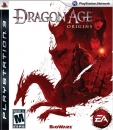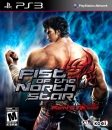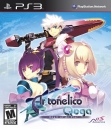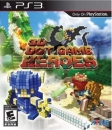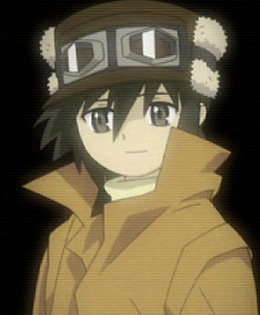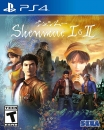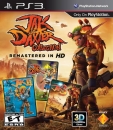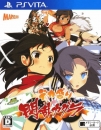Final Fantasy XIII Japanese Review
| Written by John Rozewicki |
| Monday, 28 December 2009 |
|
By now, you've probably seen some of the heated arguments over some of the more divisive design decisions made in Final Fantasy XIII. Most of them are true, but in the same sense as saying that the American Civil War was about slavery. While that statement is technically true, it's actually a lot more complicated. FFXIII is the same way. For example, there are no towns in the usual Final Fantasy sense of the word, but there are towns to be had. There are people to talk to. Most of the functionality traditionally given to towns in the series has been handled differently. You no longer need to rest in an inn because your health regenerates after battle. You won't need to regain MP because there is no MP. You can cast as many spells as the game will let you, and the game's magic system has been rebalanced to compensate for this. You won't need to buy weapons or armor or anything else from towns because all shopping is done "online," in uniquely styled boutiques that each cater to a different assortment of weapons, armor, accessories, weapon upgrade materials, and battle items. These terminals also function as save points and weapon smiths. This is only one element from the infamous list, and every single item on that list is complicated to this very same degree. It's a list of things that are technically true, but basically false. The funniest thing about that list, as someone who has played the game extensively, is that most of those criticisms are actually the game's strengths. If you think that Final Fantasy means story-driven game with turn-based battles that cleverly tries to hide the fact that there is zero player agency then you might be disappointed with Final Fantasy XIII. If you think of Final Fantasy as a series that reinvents the JRPG genre with each successive game while maintaining a few familiar elements then you'll probably enjoy it. If you're a fan of games that are polished and good, and not an uncompromising orthodox JRPG fanatic then you're going to be extremely happy. FFXIII is the most streamlined Final Fantasy game to date. Much of the tedium of the series has been eschewed in favor of an experience that's more similar to games like Uncharted 2 or Metal Gear Solid 4 than it is similar to the previous installments. That said, it's a tightly paced and well-crafted experience. There are no 25 minute cutscenes like there were in MGS4. The cutscenes happen fairly often, but they're usually extremely short. The longest ones in the game are probably only about 6-7 minutes. Most of them only felt to be about a minute or two. The developers boasted about the running time of the cutscenes in the game, but the thing you have to remember is that the total length of the cutscenes is spread out over a 40-50 hour experience. It all feels really natural, and the game does a decent job of keeping you moving. Though the game probably could have done a slightly better job of keeping you moving when it comes to dungeon design, it doesn't ruin the experience. A Story Well-ToldThe storytelling in FFXIII is the best the series has ever had. The transitions to pre-rendered movies are extremely smooth and at times difficult to notice. They're handled that well, and the in-game graphics are that good. You'll only notice if you're really looking for it, and you probably won't notice at all if you're properly swept up in the story. I definitely was. The only knock I have against the story itself is that, at times, the characters can feel a little one-note, but this is usually only near the beginning of the game. Most of those "one-note" characters are further fleshed out through flashbacks and things that happen through the course of the story. Nobody really does a huge reversal, but you find a lot of the characters to be more sympathetic as you learn more about them. With the way the story is constructed, the fact that the characters do not experience an emotional 180 actually feels more realistic. While the game is epic in scope, it is less epic in the time scale of the present-day narrative. Most of the game happens over the course of a few days or weeks. There are flashbacks to past events, and discussions of the distant past as appropriate. The game does a good job of showing you things rather than telling you things, and it chooses to give you information at appropriate times. There isn't a lot of "Oh, old friend, you of course remember this really important moment in our lives even though there's no reason to bring it up right now..." The game is content to let you be confused about certain elements until the characters themselves choose to share more with each other or they find out more themselves. FFXIII is a game that you experience with your characters. From the beginning of the game on, there's very little "lost" time for any of the characters. If someone is separated from your party then you will be playing their piece of the story separately from the rest of the group. It creates some really great moments as the characters find their way back to each other. It's a little more emotionally realistic than past games, and it creates some of the deepest, most appropriately conflicted, characters that the series has ever had. Don't kid yourself, though, it's still Final Fantasy. It has that slight peppering of anime, but this time it's good anime. A Fight Well-FoughtIf I had to pick one thing, I would have to say that the battle system is the area most overhauled. It's a bit like if you blended the systems from Final Fantasy X, X-2, and XII together. Your characters have different jobs, and each will have more than one job. Lightning, the main character, comes by default already started in the Attacker, Blaster, and Healer jobs. All of the characters have their own set of jobs that they start with, but by the end everyone is able to learn every job. It's just that jobs that are off the beaten path, like if I tried to teach Lightning skills from the Enhancer job, are going to be a little more expensive to get going than the default jobs. The strategy of the battle system comes in when you start pairing the jobs with each other. These pairings are called Optimas, and you can have 6 of them to switch between mid-battle. You might want to start the battle off with an Enhancer/Enhancer/Defender Optima to quickly get your buffs going before the action starts. After that you may want to switch to a balanced Attacker/Blaster/Defender Optima. When things get real rough you'll probably switch to something like a Healer/Healer/Defender Optima, and then to race for the final blow you'll want something like a Blaster/Blaster/Attacker Optima. Switching abilities mid-battle is reminiscent of switching characters in Final Fantasy X, the job system is most like the dress sphere system from X-2, and the real-time aspects of the battles are most like FFXII even though you are not manually moving your characters in battle. The enemies do appear in the world as they did in FFXII, and so you're free to avoid combat almost as often as you like. The battle paradigm is all about high-level tactics. The game doesn't want you to micromanage the timings of heals or which buffs or debuffs to cast. Your party's leader is the only character you directly control, with the other characters played by the AI which happens to play much better than you ever will. Because the battles are real-time, the AI never needs time to make a decision or read menus. The AI when playing the Enhancer class is the best example of this. They play nearly flawlessly. They'll cast Haste on themselves, usually, as their first buff then start rolling out the most necessary buffs after that. If the enemy has a weakness then the AI Enhancer will roll out a buff that adds an appropriate elemental magic property to each party member's weapon. After that will be the string of shields, shells, and haste on the rest of the party. They'll do this without any intervention from you, and you will thank them for it. Because the game gives you such excellent tools, the difficulty and speed of the battles have also been increased. Battles are much much faster in Final Fantasy XIII, and the proof of this is in the Battle Ranking system which gives you stars based on how much time it took you to finish the enemies off. To get a 5 star ranking on a PSICOM soldier from close to the beginning of the game, you'll want to waste him in under 15 seconds. The better your ranking, the better your likelihood of getting rare drops or drops at all from the enemies. A byproduct of this is that the game is very intuitive about letting you know if your strategies are working. A good rule of thumb is that if the battle seems like a grind then you're probably using the wrong strategy. There are usually multiple good strategies to any one fight, but I like to break them into three categories: wrong strategies, effective but excruciatingly slow strategies, and the right strategy. If you really wanted to grind the enemies away with a very conservative Attacker/Healer/Defender Optima then the game will let you, but you won't get very good loot and it's going to be extremely boring. This slow, safe, strategy might take 15 minutes to kill some of the tougher enemies while a proper strategy will have you done in just 3 or 4 minutes. Picking the wrong strategy however, can have you seeing the Game Over screen far quicker than you expected to. It's a very dynamic system, and it makes the battles feel a lot livelier. FFXIII makes Final Fantasy no longer a "sit back," type of experience. A Conclusion Well-EndedOverall, Final Fantasy XIII delivered on the reasonable expectations that I had. It's definitely better. It's definitely prettier. The music is fantastic. It's definitely Final Fantasy. Whether or not you like the game will come down to how much you liked the more linear structure of FFX. If you didn't mind it then this game will make you very happy. If you're coming from the far less linear FFXII side of the fence then you might not like it as much, but I think you should still try to clear a little space in your heart for it. Gran Pulse, this game's version of the Calm Lands is about 20x bigger than the Calm Lands. There are sidequests to do there, and there's something addictive about it despite it opening up fairly late in the game. There's also very decent story reasons why the game is structured more linearly than it might be, but to fully defend that decision would require me to spoil the game. The story is strong, and the battle system will probably soothe the rest of the minor annoyances. Don't fall for some of the more vocal misguided criticisms you're probably reading second-hand. FFXIII is no way, shape, or form anything that even slightly resembles anything anyone would ever call a "bad game." I'll concede that it's not perfect. There are a lot of valid minor criticisms, but anyone who calls the game "bad," needs to find a copy of Unlimited Saga so they can properly recalibrate. The only thing keeping this game from being perfect is the lack of easy replay value, and the slight tedium of the middle sections of the game before Gran Pulse. It is a solid 4 out of 5 stars, and should be a definite launch day purchase if you're even remotely interested in the game. I've put in 40 hours over the last 11 days, and I'm still jones'ing during work to get home to play more. There's not a lot of games that hit that sweet spot with me, and this game does. If you're a fan of games that are polished and good, and not an uncompromising orthodox JRPG fanatic then you're going to be extremely happy.
Note: This is a review of the Japanese version of the game, but so far there have been no announcements that the game will be different when it comes out in English. If you do not understand Japanese then do not import this game. You will most likely not have fun. You've waited this long, you can wait a little bit longer.-------------- wow, after reading othr reviews i thought ff13 wasnt a buy for me, but today 5 positive reviw came, this is one of them, i might buy ff13 now, but evry1 is saying diffrent things |































